Oddly twisted leaves on your plants? You may be dealing with Grazon contamination. Here’s how to rescue your garden from this herbicide.
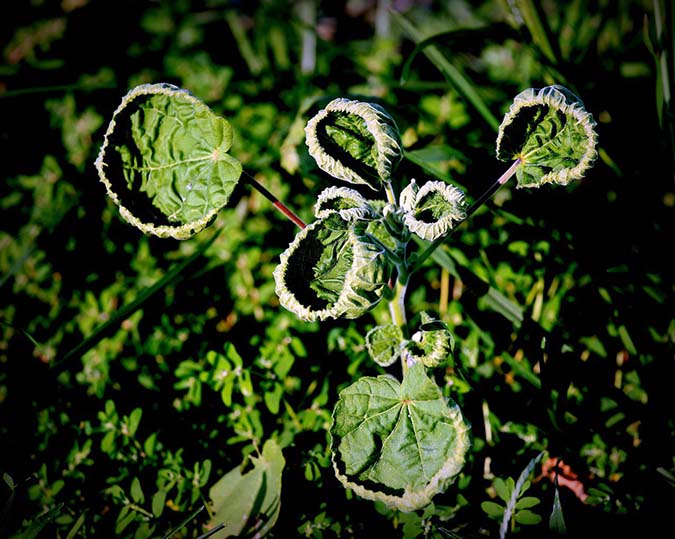
Image by giannino nalin from Pixabay
How to Rescue a Garden Destroyed by Grazon Contamination
I received this heartbreaking comment on one of my blog posts about Grazon contamination in manure:
“We have about 80 acres in pasture. Four years ago, our co-op started a spraying program. Having horses, Grazon was recommended. I was told it was safe for the horses to stay in the pasture while it was sprayed and even ok for the horses to eat while still wet. I was never told not to compost the manure. Two years ago, I started composting manure out of the pasture. This year, I started giving it to friends. What a ***** mess. I spent a lot of time with a shovel collecting the manure, turning it, and delivering it to friends. I’ve had two contact me about their gardens and problems they’re having. One of them asked if we were using Grazon. This is going to cost me a great deal of time and money to fix. Some are small raised gardens, and I’m going to go in and remove and replace the soil. Some are larger, up to an acre, and I don’t know what we’re going to do. I’m open to all suggestions. Thanks.”
Aminopyralids are bad news, yet a lot of people don’t know how bad they are yet. People need to recognize the problem.
Recognize Grazon Is a Serious Problem
People are still disbelieving on this topic. Look at some of the comments on this video:
No, it’s NOT that the manure is too hot or not composted enough. Stop blaming the gardener. A lot of farmers and gardeners have been growing with manure for years and never had anything like this happen. I know what too much nitrogen looks like, as does pretty much every person I’ve met who has been hit with a Grazon kill in their beds.
It’s a serious, persistent, long-term herbicide that is taken up in plant material and can be consumed by animals, passed through in their manure, then still be toxic to gardens even after months or possibly years of composting.
It is evil. It is nasty. It is here, and if you put manure on your gardens without knowing 100% that it’s not contaminated with this crap, you are running a very high risk of losing your plants.
You May Also Enjoy:
“The Hidden Dangers of Straw Bale Gardening”
“Composting the SCARY Stuff—Meat, Dairy, Bones, and Human Waste!”
(By the way, Marjory recommends a simple test to help you determine whether manure (or straw or hay) is contaminated:
- Grow a flat of legumes.
- Mix the manure, straw, or hay with water in a 5-gallon bucket and stir frequently for a day or two.
- Then, use the water on the legumes.
- Keep an eye on the legumes to see how they respond. If the second and third set of leaves look normal, Marjory says the straw, hay, or manure is probably safe to use.)
What Does Grazon Contamination Look Like?
If you think you have been hit with Grazon, look at the leaves. If they look weirdly twisted and curled and you’ve applied manure, straw, or hay at some point, it’s probably Grazon.
Grazon damage looks like this:
And it looks like this:
The plant is often still green and trying to grow, but it will never produce anything. All the new growth twists and thickens as the cell-stacking function is inhibited by the toxin, causing that weird, horrible growth, and tinier and tinier little leaves.
Read Karen Land’s story. It’s another heartbreaker, but you can see what happened when a really good gardener was hit by this stuff.
Fixing Grazon Contamination
So, what do you do once you know you’ve been hit?
First of all, remove all the manure you can. Get it out of your garden beds. Scrape it and throw it somewhere at the edge of your property or in an empty lot where it won’t hurt anything else.
Take out the plants that have already been affected and throw them away. Don’t compost them, because that will just add the toxin to your compost. Throw them out or chuck them where you chucked the manure.
You May Also Enjoy:
“Sheet Mulching: Build Soil, Thwart Weeds, and Make Your Garden Fertile”
After doing all the cleanup you can, try adding some crushed charcoal to the beds. Activated charcoal dust would be really good. And throw in compost—NOT aminopyralid-laced compost—when you do, knowing that the charcoal is going to suck a lot of the nutrition out of the soil along with the herbicide. A friend of mine had some of her tomatoes live through Grazon-contaminated manure thanks to the ashes and charcoal she had planted them in. The ones that got the manure without the charcoal were destroyed.
Another option is to plant members of the grass family for a couple of seasons. They are not affected by the toxin as it’s targeted at broad-leaf plants, not grasses. You can plant corn and grains and they’ll produce. Again, though, don’t compost the stalks.
The final thing I would say on this is: Complain! Tell everyone about this garbage. It should be illegal, as it’s doing untold destruction to gardens and farms across the country. There is no responsible way to use this poison. It needs to be done away with. Vermont has already pulled the trigger. The rest of the nation should follow.
I have a lot more on Grazon and avoiding it in my book Compost Everything: The Good Guide to Extreme Composting. Don’t get hit!
___________________
This is an updated version of an article that was original published on January 31, 2019. The author may not currently be available to respond to comments, however we encourage our Community members to chime in to share their experiences and answer questions!
The Grow Network is a participant in the Amazon Services LLC Associates Program, an affiliate program designed to provide a means for our team to earn fees for recommending our favorite products! We may earn a small commission, at no additional cost to you, should you purchase an item after clicking one of our links. Thanks for supporting TGN!
David The Good is a Grow Network Change Maker, a gardening expert, and the author of five books you can find on Amazon: Compost Everything: The Good Guide to Extreme Composting, Grow or Die: The Good Guide to Survival Gardening, Totally Crazy Easy Florida Gardening, Create Your Own Florida Food Forest, and Push the Zone: The Good Guide to Growing Tropical Plants Beyond the Tropics. Find fresh gardening inspiration at his website TheSurvivalGardener.com and be sure to follow his popular YouTube channel.
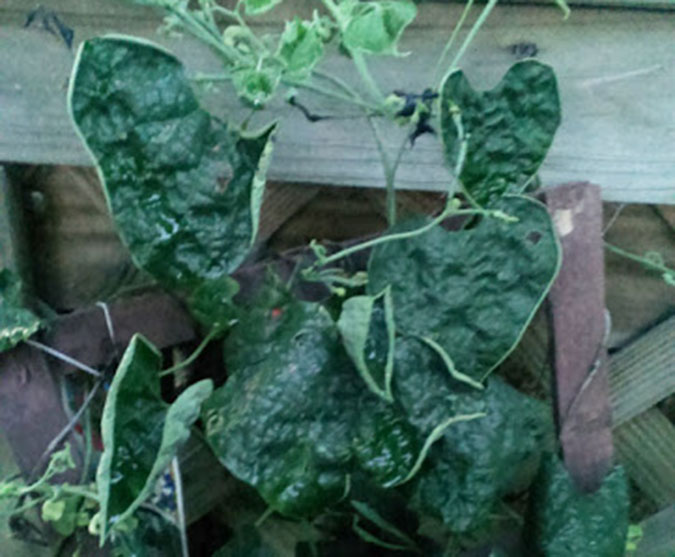
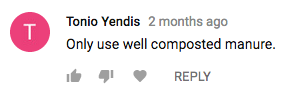






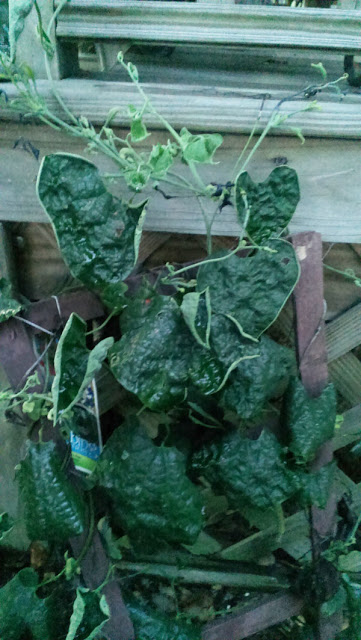
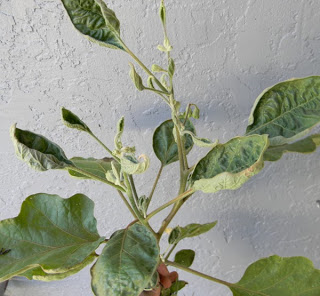







COMMENTS(7)
That is just so sad … all that work and preparation just to destroy your garden …Thanks for the write-up David.. Good too keep this in mind when using manure in general I guess….
Holy crap (literally)… I pride myself on taking such a big picture holistic view of things… I never even CONSIDERED the manure we compost from our paddocks could be poisoning our garden, but with a weed-spraying husband ( who I’m often at odds with on how to manage the “weeds”) who also uses all the horse manure from our pile, I’m thinking that this is a slightly familiar look to some of our plants… I’ll pay much closer attention to them from now on. Any ideas on how long after spraying a pasture that the animals’ manure will still be contaminated for?
The toxin lasts for a couple of years. When I got hit, the fields had been sprayed in June/July, the manure had been composted until Jan/Feb, I applied it to my garden in March or so, then the garden beds were wrecked for an entire year after that.
Is Grazon in the green spray that my neighbor sprays his lawn with? Immediately after they sprayed my 10 year old privet hedge turned brown. And my zucchini, cucumbers, okra and cantaloupe only got about 4 inches tall and died. I didn’t use any manure.
“You can plant corn and grains and they’ll produce. Again, though, don’t compost the stalks.” What if you burn the stalks or horse manure? Will that destroy the Grazon?
There’s a YouTube channel called “Roots and Refuge Farm” and they are dealing with this soil contamination issue in compost they purchased. It seems to bother plants in the nightshade family the most. The seller of the compost is taking responsibility and is trying to help. They say they test their compost and, so far, nothing has shown up. Jess, the owner of the channel, is trying different organic methods to alleviate the contamination and she knows its a long term struggle. She’s trying different teas and now mushrooms. She has received comments from all over the world from gardeners dealing with contaminated soil. It’s a heads up to all of us. I buy compost in bulk…it’s cow manure mixed with tiny wood chips. I need to ask questions before I buy any more.
My hibiscus plants are showing this exact same symptom, but they have never had ANY manure or pesticides, so I have no idea what is causing it, since it cannot be from Grazon.
Curiously, there is also an invasion of strangling vines taking over now at the same time, so maybe those strangling vines have something to do with it?